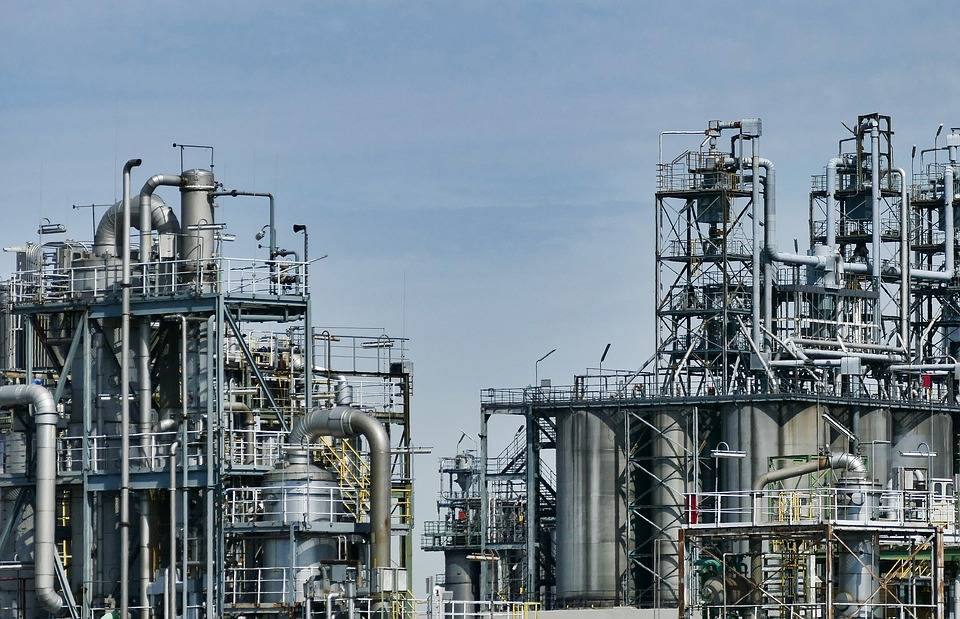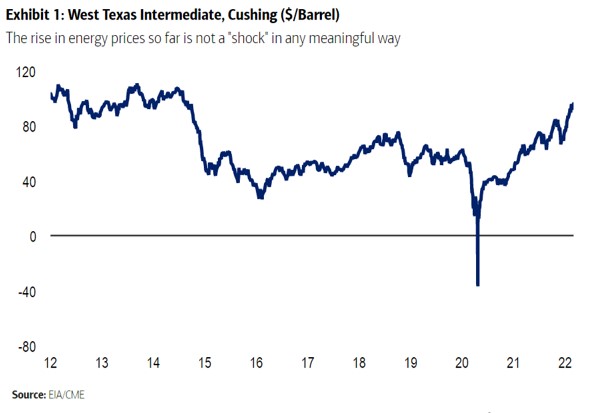Asset Management
Crude Oil Prices Keep Climbing, Driven By Ukraine – Reactions

Oil prices are red hot, with sanctions against Russia, worries about global supply chains and the ongoing crisis in Ukraine keeping levels high. Here are reactions from economists and asset managers.
Crude oil prices surged yesterday before easing off a touch, and higher energy prices – which will drive up production and distribution costs for goods and services – have spooked stock markets. The Russian invasion of Ukraine – an important producer of commodities such as wheat – has been met by strong Western sanctions against Vladimir Putin’s regime in Moscow. Coupled with supply chain disruptions caused by COVID-19 and associated lockdowns, economists are trying to work out how central banks can mop up excess monetary liquidity caused by quantitative easing at such a difficult time.
Here is a range of commentaries from different parts of the world from economists and asset managers.
Bank of America Securities, part of Bank of
America
At this stage we have three key economic calls around the Ukraine
crisis: (1) the US and global economy enters the crisis with
strong momentum, (2) if current sanctions are sustained, they are
a big hit to Russian growth, a moderate hit to European growth
and only a small shock to the US economy, and (3) the risks to
this outlook are large and very much skewed to the downside.
Indeed, we are a bit surprised by the resilience of risk assets
thus far.
The big missing element in the sanctions thus far is that they
have little impact on Russian energy exports. The threat of such
sanctions has put a risk premium into the oil market, but the
rise in energy prices so far is not a "shock" in any meaningful
way

The problem is that we have no confidence in predicting what
happens next. Russia experts have repeatedly under-estimated how
far Putin would go not only in this crisis but also in Russia's
previous incursions into Ukraine. It also appears that both the
experts and Putin himself have been surprised by the remarkable
resistance from the Ukraine people and the stronger-than-expected
NATO response. Perhaps this will cause Putin to look for a
face-saving way out of Ukraine, but we are very concerned about
the opposite – a sharp escalation of the attack with energy
sanctions to follow.
If the West cuts off most of Russia's energy exports it would be
a major shock to global markets. Francisco Blanch [head of
global commodities, equity derivatives and cross-asset
quantitative investment strategies] and team estimate that
every unexpected 1mn b/d supply or demand move can result, other
things being equal, in an about $20/per barrel move in
prices. If most of Russia's oil exports are cut off, there could
be a 5 million b/d or larger shortfall even if there is some
offset from the release of strategic reserves and some increase
in OPEC exports. That means oil prices could double from $100/bbl
to $200/bbl.
For moderate movements in oil prices our rule of thumb suggests
that sustained $100/bbl higher prices lowers GDP growth in the
year ahead by 1 per cent or so. The low number comes from the
fact that the US is energy independent (that is, we produce as
much energy as we consume). However, history shows that big
shocks can have non-linear effects. This is particularly the case
if there is sticker shock from record-high gasoline prices. We
could see a hit to growth closer to 2 per cent.
We want to emphasise that this is a scenario and not a forecast.
However, the outlook is highly uncertain and investors need to
consider the range of risks.
Capital Economics, the UK firm, on what the European
Central Bank might conclude:
The war in Ukraine has prompted us to revise our forecasts for
eurozone GDP, inflation and monetary policy. Russia’s downturn in
2015 had no obvious impact on eurozone GDP and Russia has become
less important as an export market since then. But we expect a
much deeper recession in Russia this year, and the spillovers to
Europe will be larger due to the severity of the sanctions. For
now, we are cutting our eurozone GDP growth forecast for this
year from 3.5 per cent to 2.8 per cent. Meanwhile, the recent
surge in commodity prices, together with upside surprises to
inflation in January and February, mean that we now think
headline inflation will average around 5.5 per cent this
year and 2.5 per cent next year, well above the European Central
Bank’s 2 per cent target. Finally, the war seems to have made
policymakers at the central bank more cautious, so we think they
will wait a little longer before tightening policy than
previously seemed likely. We now anticipate one 25bp rate
increase late this year and another 50bp during 2023.
Tracy Chen, a portfolio manager on the fixed income team
at Brandywine Global
The Russia-Ukraine crisis has not only heightened geopolitical
risk, but it signifies a major shift in the world order to one
that is more multi-polar. The end results are likely to be more
frequent and more unpredictable flare-ups and higher market
volatility. And higher market volatility may introduce more
opportunities to generate alpha for global investment
managers.
Derek Deutsch, managing director and portfolio manager at
ClearBridge Investments
Military invasions have historically created an equity market
low, with US stocks becoming increasingly volatile over the last
several trading days and making what could be a near-term
bottom.
With inflation risks skewed even more to the upside by
conflict-related commodity price spikes, the US Federal Reserve
is not likely to deviate materially from the market’s pricing of
rate hikes. Such inflationary pressures are felt more strongly
and directly in Europe and could lead to a more dovish policy
stance by the European Central Bank.